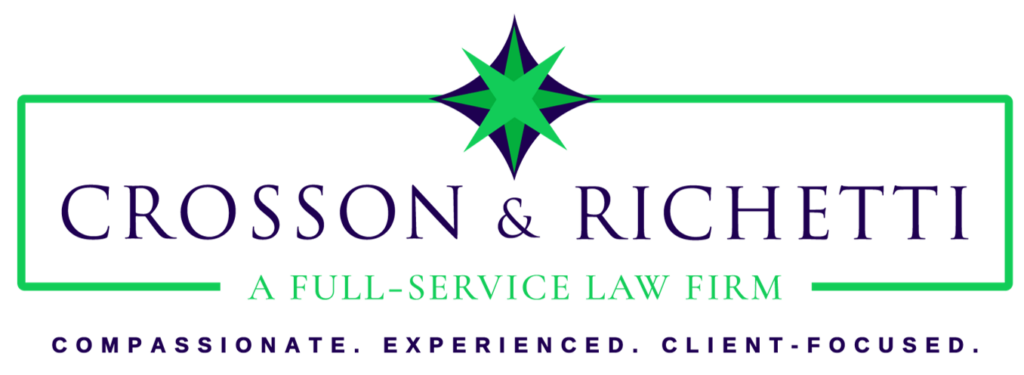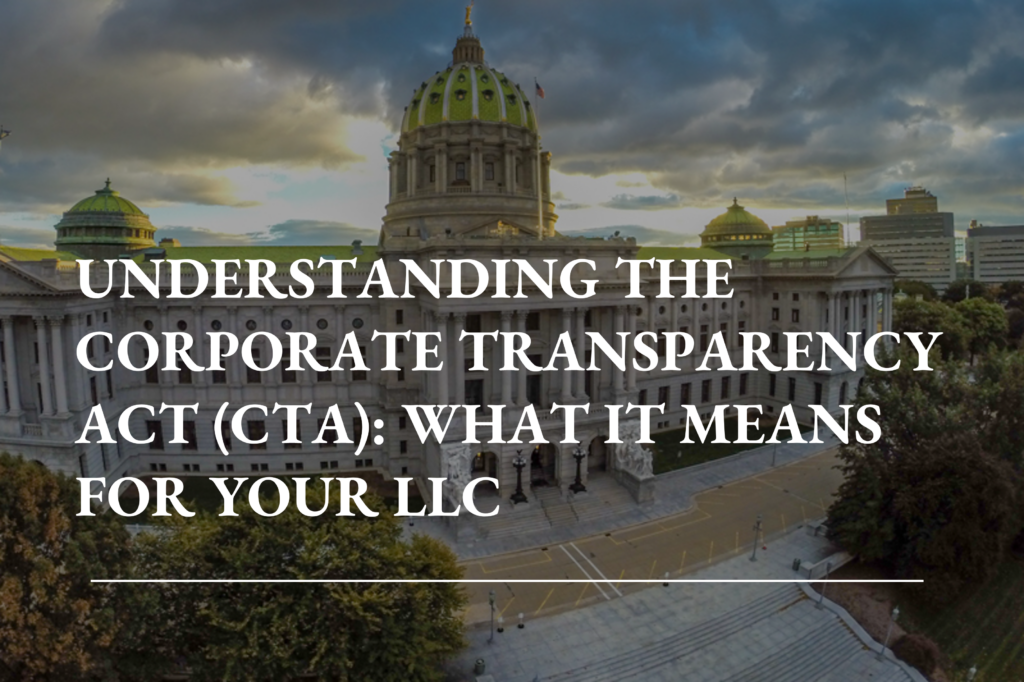What is the Corporate Transparency Act (CTA)?
The Corporate Transparency Act (CTA) is a new federal law aimed at combating financial crimes such as money laundering, tax evasion, and fraud. Under this legislation, certain businesses—including most LLCs (Limited Liability Companies)—must disclose information about their “beneficial owners” to the U.S. Treasury Department’s Financial Crimes Enforcement Network (FinCEN).
The CTA, which went into effect on January 1, 2024, is a landmark effort to bring greater transparency to business ownership in the U.S. If you own an LLC or are thinking of forming one, it’s essential to understand how this law impacts you and what steps you need to take to remain compliant.
H2: Who Needs to File Under the Corporate Transparency Act?
The CTA applies to most businesses that qualify as a “reporting company”, including LLCs, corporations, and other similar entities. If you own an LLC, there’s a high chance that your company will need to comply.
What Is a Reporting Company?
A reporting company is any U.S.-based or foreign-registered company doing business in the United States, unless it qualifies for one of the law’s limited exemptions. Certain types of organizations, such as publicly traded companies and certain regulated financial institutions, are exempt from reporting under the CTA.
Who is Considered a Beneficial Owner?
A beneficial owner is defined as an individual who:
- Owns 25% or more of the company, OR
- Exercises substantial control over the company’s operations or decision-making.
If you or someone else in your company meets these criteria, their information must be reported.
H2: What Information Must Be Reported to FinCEN?
The CTA requires you to file detailed information about your company’s beneficial owners. Here’s a breakdown of what needs to be submitted:
- Full Name of each beneficial owner
- Date of Birth
- Current Residential or Business Address
- Unique Identifying Number (from a government-issued ID, such as a passport or driver’s license)
This information is submitted directly to FinCEN (Financial Crimes Enforcement Network), and while it is not publicly accessible, it may be shared with authorized government agencies for law enforcement purposes.
H2: Where and How Do You File?
All beneficial ownership information must be submitted to FinCEN. Unlike most state filings (like annual reports), this filing is done at the federal level. FinCEN is building a secure, online portal to accept and manage beneficial ownership reports.
How to File:
- Visit FinCEN’s Beneficial Ownership Filing Portal (anticipated launch soon).
- Submit required information for all beneficial owners and the company itself.
- Keep a copy of your submission and any confirmation documents.
The information is stored in a secure government database and is not accessible to the general public, ensuring privacy while promoting financial transparency.
H2: When Are the Filing Deadlines?
The deadline to file your company’s beneficial ownership information depends on when your LLC was formed.
- For existing LLCs (formed before January 1, 2024):
The deadline to submit your beneficial ownership report is January 1, 2025. - For new LLCs (formed on or after January 1, 2024):
You must submit your report within 90 days of forming the company.
If you fail to meet these deadlines, you could face serious consequences.
H2: Why the Corporate Transparency Act Matters
The goal of the CTA is to bring greater accountability and transparency to business ownership in the U.S. Historically, anonymous shell companies have been used to hide money from taxes, launder funds from criminal activity, and avoid legal scrutiny.
By requiring companies to disclose their beneficial owners, the CTA aims to:
- Prevent financial crime like money laundering, tax evasion, and fraud.
- Close regulatory loopholes that allow bad actors to operate in the shadows.
- Enhance transparency in the U.S. corporate system, promoting ethical business practices.
While the goal of the law is noble, the compliance burden on small businesses is significant. Many small business owners who were not previously required to submit this type of information must now ensure they meet the deadlines and reporting obligations.
H2: What Happens If You Don’t Comply?
Failure to file your beneficial ownership report can result in hefty penalties and legal consequences.
- Civil Penalties: Up to $500 per day for each day the violation continues.
- Criminal Penalties: Potential fines of up to $10,000 and up to 2 years in prison for willfully failing to comply or providing false information.
These penalties make it essential for LLC owners to stay on top of the deadlines and ensure all information submitted is accurate.
H2: How Crosson & Richetti Can Help
Navigating the requirements of the Corporate Transparency Act can be overwhelming, but you don’t have to do it alone. Crosson & Richetti is here to guide you through the process, ensuring your company stays compliant and avoids penalties.
Here’s how we can support you:
- Determine if your LLC qualifies as a “reporting company.”
- Help identify beneficial owners within your company.
- Collect and prepare the necessary documentation for filing.
- Submit your beneficial ownership report to FinCEN and ensure everything is accurate and timely.
We stay up-to-date on the latest developments with FinCEN’s reporting process so you don’t have to. Our goal is to make compliance simple and stress-free for your business.
H2: FAQs About the Corporate Transparency Act
Q: Do I need to file if I own a single-member LLC?
A: Yes, in most cases, single-member LLCs must file if they meet the criteria of a “reporting company.” If you are the sole owner and have substantial control, your information must be submitted to FinCEN.
Q: Is this information public?
A: No, the beneficial ownership information is only accessible to law enforcement and certain authorized government entities. It is not part of the public record.
Q: What if my beneficial owners change after I file?
A: If there are changes in beneficial ownership, you are required to update your report within 30 days of the change. This ensures that FinCEN has accurate, up-to-date information.
Q: Are there any exemptions?
A: Certain companies, like publicly traded corporations and financial institutions, are exempt from filing under the CTA. Our team can help you determine if your company qualifies for an exemption.
H2: Final Thoughts on the Corporate Transparency Act
The Corporate Transparency Act is a significant shift for LLC owners and small businesses. While its goal is to prevent financial crime, it introduces new compliance responsibilities for business owners.
With deadlines approaching and penalties on the line, it’s crucial to act quickly. By working with an experienced legal team like Crosson & Richetti, you can ensure your company stays compliant, avoids fines, and keeps its focus on growth—not legal issues.
Don’t wait until the last minute. Our experienced attorneys are here to guide you through the process step-by-step.
👉 Need help filing your beneficial ownership report? Contact Crosson & Richetti today to get started!
#CorporateTransparencyAct #LLCCompliance #BeneficialOwnership #BusinessLaw #CrossonAndRichetti #FinCEN #LLCReporting #BusinessOwners
Focus Keyword: Corporate Transparency Act
Meta Description (for Yoast SEO): “Learn how the Corporate Transparency Act affects LLCs. Find out who must report, what information is required, and how Crosson & Richetti can help your business stay compliant.”attorneys create an estate plan that works for you.
Questions about the Corporate Transparency Act, rach out now: CLICK HERE







